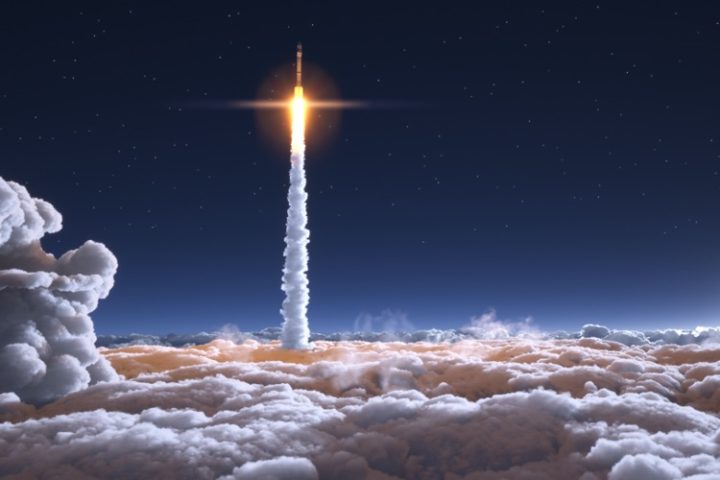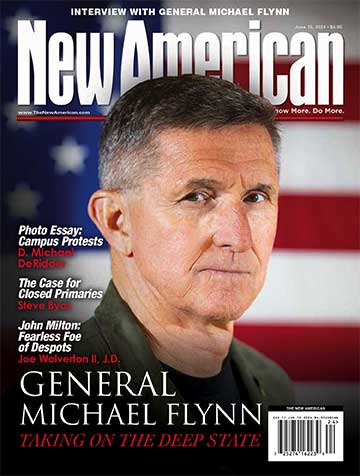
At a forum on Eurasian security in Belarusian capital Minsk on October 26, Russian Foreign Minister Sergey Lavrov declared that Russia must stand up to the threat posed by U.S. nuclear weapons stationed in Europe, slamming the West for openly conducting a “real war” against Moscow.
Lavrov condemned Western nations for waging “an open, hybrid [war], but however you describe it, it’s a real war,” further characterizing Ukraine as the main tool in the hands of Washington and its allies.
“Western aggression against Russia is only part of a crusade … against any member of the international community who would demonstrate independence and defend national interests,” Lavrov elaborated.
He also maintained that such a situation gave rise to “increased strategic risks,” as well as “an extremely destabilizing charge and forces us to resort to compensatory measures amid the general increase of threats posed by NATO.”
The Russian foreign minister reinforced Russia’s denunciation of NATO’s nuclear sharing scheme. Based on such a plan, part of the U.S. nuclear arsenal is based outside the United States, with training given to U.S. allies on how to mobilize arms.
Dozens of U.S. nuclear bombs are supposedly based in Germany, Italy, Belgium, the Netherlands, and Türkiye. Some non-host nations, such as Poland, have obtained training in using the weapons, which Moscow regards as a type of nuclear proliferation.
That being said, Lavrov posited that the regional balance of power is tilting away from the West, providing hope for more effective security architecture in Eurasia. The Russian diplomat added that Moscow is hoping to revisit the notion of an indivisible security space “from Lisbon to Vladivostok,” and is open to discussions with all regional countries.
“But this time it must be an honest talk aimed at achieving practical outcomes, rather than sloganeering masquerading a desire to pursue egoistic policies,” Lavrov qualified.
All states should promise not to use their territories to “create threats to anyone,” while any leeway “for a diktat of force by players outside of the region and the continent” should be eradicated, Lavrov warned.
The Russian diplomat hailed his Hungarian counterpart, Péter Szijjártó, who is also attending the two-day event in the Belarusian capital, as coming from a country that appreciates the value of national sovereignty.
Most other nations to the west of Russia have kowtowed to Washington’s rule, and Moscow presently sees no point in discussing continent-wide security with them, Lavrov stated. The situation will change “if they find the strength to become independent [and] acquire ‘strategic autonomy,’” as portrayed by French President Emmanuel Macron and other European leaders, the Russian foreign minister continued.
Earlier this month, Czech President Petr Pavel alleged at the College of Europe in Bruges, Belgium, that the EU should welcome not only Ukraine, but Moldova, Georgia, and the Western Balkans for its own security, insisting that continued EU enlargement to the east was a geopolitical necessity.
“The new geopolitical imperative requires a new dynamic of enlargement,” Pavel stated at the new academic year’s opening ceremony, with the former president of the European Council, Herman van Rompuy, and the former head of EU diplomacy, Federica Mogherini, in attendance.
“For too long, we have left some European countries at the mercy of geopolitical manipulations,” the Czech president proclaimed, maintaining that the “European and Atlantic” integration of Ukraine, Moldova, Georgia, and the Western Balkans should be “completed.”
The bloc’s expansion would allegedly boost its security in an “increasingly antagonistic” international environment, the president elaborated, as reported by the Czech Television broadcaster. Pavel lambasted Russia’s ongoing military operations in Ukraine as the most “pressing security threat,” while a “more demanding than assertive China” poses a greater “geopolitical challenge.”
Additionally, Pavel cautioned Brussels against what he termed as “distrust in new democracies” and called for it to concentrate on elements that supposedly jeopardize trust in democracy instead.
Pavel’s remarks came just days after German Foreign Minister Minister Annalena Baerbock pledged to enlarge the EU and take back former Ukrainian regions that joined Russia in 2022. “[The EU] will soon stretch from Lisbon to Lugansk,” Baerbock told journalists on the fringes of the EU foreign ministers’ gathering in Kyiv.
The German minister highlighted that “every meter” of territory the Ukrainian troops obtain from Russian troops in the ongoing Russo-Ukrainian conflict takes Kyiv closer to EU membership.
Previously, Bloomberg reported that some EU member states harbored worries about a potential overextension of the bloc by accepting Ukraine and channeling resources toward it.
Meanwhile, Elon Musk has concurred with a social-media post of investor and entrepreneur David Sacks, who criticized Washington’s attempts to supply Ukraine with more aid as doomed to failure.
Posting on the social-media platform X on October 24, Sacks stated that although Washington had supplied Kyiv with over $100 billion in various forms of aid last year with the belief that this would enable Ukraine to “push the Russians out in a successful counteroffensive,” this plan failed eventually.
“In fact, the lines hardly budged; if anything, Russia gained territory. Now, DC claims another $60 billion will get the job done. You’re a fool if you believe this,” the businessman declared.
In his response on October 25, Musk appeared to reinforce Sacks’ evaluation, stating: “Lots of fools out there.”
Sacks’ comments came after the leftist administration of Joe Biden asked Congress to authorize a $105 billion aid package meant, among other things, to address the security needs of Ukraine, Israel, and Taiwan. Over $61 billion of that amount has been set aside for Kyiv.
Many U.S. Republicans have voiced strong objections to persistent aid for Kyiv, quoting a lack of accountability on the part of the Biden government.
Several times, Musk has expressed his views regarding tensions between Moscow and Kyiv, indicating last month that he felt that Ukraine’s much-hyped counteroffensive had failed, writing that there had been “so much death for so little.” Earlier this month, Russian President Vladimir Putin stated that Kyiv had lost more than 90,000 troops since the push began in early June.
Furthermore, Musk also suggested this week that Washington was “sleepwalking” into World War III and that it should seek to reinstate relations with Russia, including by pressuring Ukraine to agree to a ceasefire with Moscow. Musk’s suggestion faced harsh criticism in Kyiv, with Mykhailo Podolyak, a senior aide to Ukrainian President Volodymyr Zelensky, disavowing Musk’s comments as a “catastrophic mistake,” saying that he would surrender Ukraine to “mandatory large-scale genocide.”



